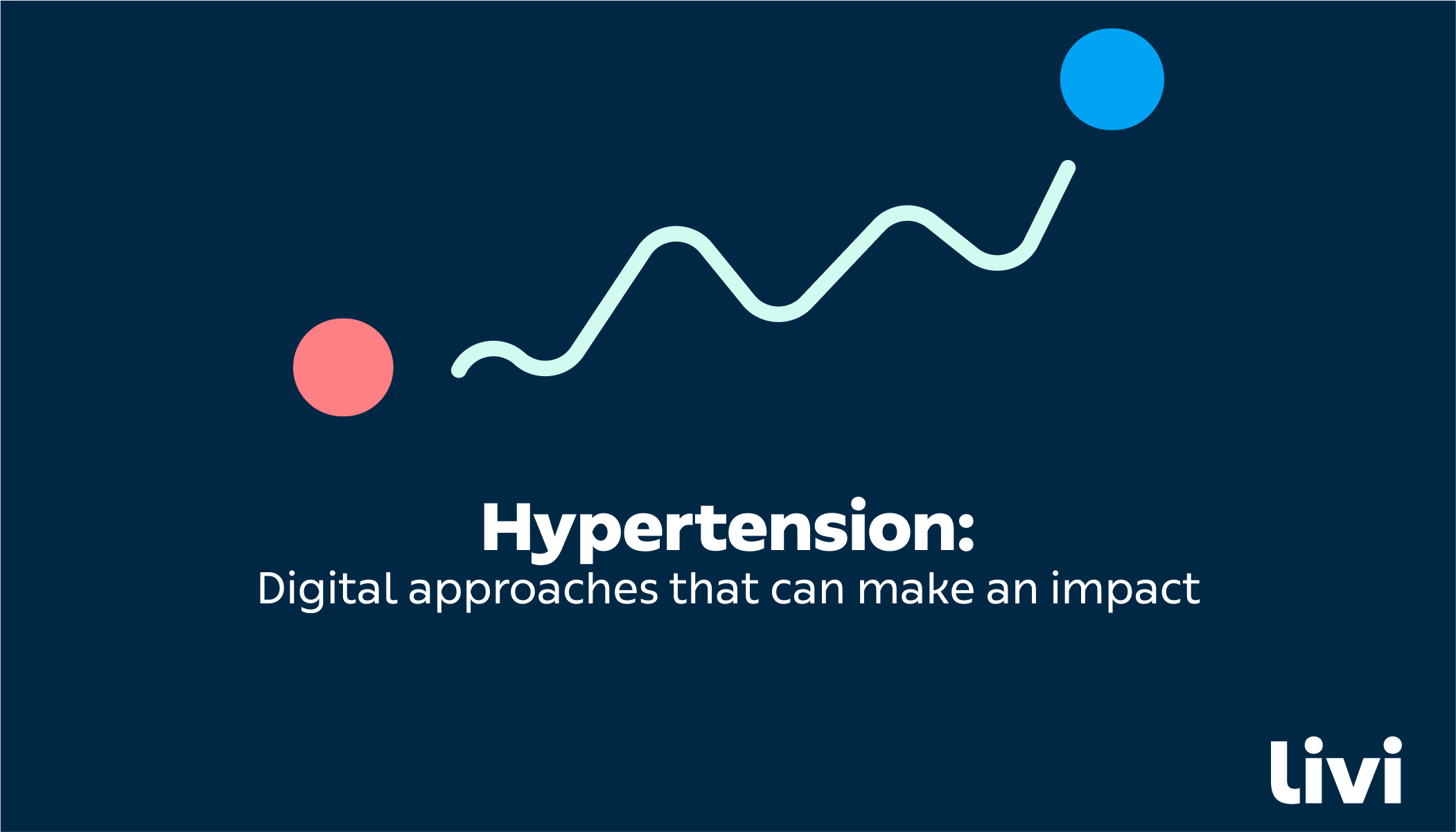September sees the return of the ‘Know Your Numbers’ campaign focused on raising awareness of high blood pressure (1). This vitally important campaign seeks to encourage and empower adults to know their blood pressure numbers, much in the same way as height or weight.
Today, there are an estimated 6 million people living with undiagnosed high blood pressure or hypertension. Left unchecked, hypertension can lead to a range of serious health issues including dementia, kidney damage and heart issues. It has also been linked to diabetes and obesity.
High blood pressure is estimated to cost the NHS £2.1 billion a year and every day 350 people have a stroke or heart attack that could have been prevented. In this short read, we look at a range of digital approaches, strategies and tactics to combat hypertension.
Telemonitoring at scale
Primary care models featuring at-scale utilisation of smart messaging have been shown to deliver results.
Such platforms can enable patients to measure blood pressure at home and submit readings via SMS. GPs receive regular summaries and patients are given an action plan to support lifestyle changes where appropriate. Platforms can also utilise automation and chatbots to provide nudges and encouragement to patients.
In one study, increased blood pressure control was demonstrated through such a model (2). Compared to non-telemonitored patients, participants utilising telemonitoring achieved reductions in systolic blood pressure of 6.55 mm Hg on average. While the total number of appointments required also reduced by 8% and consultation time fell by 15 minutes. Patients also reported finding the system helpful.
Digital-enabled behavioural therapy
Mobile apps and machine learning also promise many potential benefits in the fight against hypertension.
In a study, blood pressure reduction was achieved in the majority of participants using a mobile app delivering personalised behavioural therapy with goal setting, skill building and self-monitoring (3).
Designed to facilitate a range of behaviour changes including increasing physical activity and healthy eating, the app also utilised artificial intelligence to encourage individuals and provide feedback. This was combined with telephone coaching.
43% of participants tracking their blood pressure at 12 weeks achieved blood pressure control as defined by the 2017 American College of Cardiology/American Heart Association.
Health promotion and prevention through education
One of the biggest challenges facing healthcare providers is that hypertension can often go unnoticed by the patient. Referred to as the silent killer, the first ‘symptom’ may unfortunately be a heart attack or stroke. Thus, in the fight against hypertension, education and awareness is vital.
Online hypertensive education has been shown to help raise awareness and support proactive, preventative strategies. Indeed, in a study, a digital programme featuring interactive education with instructions on lifestyle modification, planning and evaluation delivered significant reductions in blood pressure (4).
How Livi can help
Livi supports partners across the health system to identify patients living with chronic conditions earlier and deliver care through digital platforms. We provide a range of solutions including digital capacity at scale, patient engagement platforms and remote monitoring tools.
While our digital content hubs support individuals to adopt healthy habits and lifestyle changes. To discuss your needs, book a meeting or email partnerships-uk@livi.co.uk.
References
Blood Pressure UK. Know Your Numbers. Available online: bloodpressureuk.org/know-your-numbers
PLOS Medicine. Telemonitoring at scale for hypertension in primary care: An implementation study. Available online: journals.plos.org/plosmedicine/article?id=10.1371/journal.pmed.1003124#sec020.
JMIR Cardio. 2019 Jan-Jun; 3(1): e13030. Achieving Rapid Blood Pressure Control With Digital Therapeutics: Retrospective Cohort and Machine Learning Study, Available online: ncbi.nlm.nih.gov/pmc/articles/PMC6834235/
Hypertension. 2022 Oct; 79(10): 2148–2158. Digital Therapeutics in Hypertension: Evidence and Perspectives. Available online: ncbi.nlm.nih.gov/pmc/articles/PMC944425

